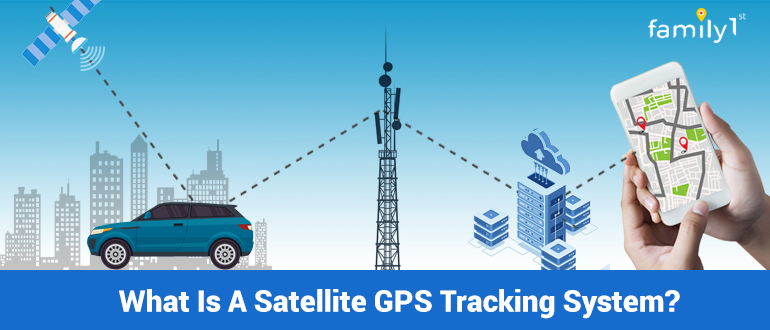Inexpensive GPS Tracking Options: Discover the Right Remedy for You
Inexpensive GPS Tracking Options: Discover the Right Remedy for You
Blog Article
Browsing the Future of GPS Tracking: Innovations, Challenges, and Opportunities Ahead
As we stand at the crossroads of technological innovations and social effects, the landscape of General practitioner tracking is poised for a transformative journey in advance. With terrific innovation comes terrific obligation, as data privacy problems impend big and security difficulties in General practitioner tracking raising pertinent inquiries about safeguarding sensitive info.
Advancement of GPS Modern Technology
Developed for military functions, General practitioner modern technology has actually advanced to come to be an ubiquitous tool in different markets, including transport, logistics, farming, and personal navigating. Early GPS systems were defined by limited protection, reduced precision, and bulkier hardware requirements.
One trick turning point in the advancement of GPS modern technology was the development of Careful Accessibility (SA) in the 1990s, which purposefully broke down the precision of civilian GPS signals. As GPS innovation continues to evolve, we can expect further renovations in precision, effectiveness, and protection, opening up brand-new possibilities for development and applications across various sectors.
Real-Time Monitoring Improvements
Building on the innovations in GPS technology that have actually revolutionized accuracy and insurance coverage, real-time tracking has become an essential area of development with extensive ramifications throughout different sectors. Real-time monitoring developments make it possible for services and companies to keep an eye on lorries, personnel, and assets immediately, providing beneficial insights for decision-making processes - gps tracking. By leveraging real-time information, companies can boost operational effectiveness, improve consumer solution, and guarantee the safety and safety of their possessions
One of the key developments in real-time tracking is the combination of synthetic knowledge and equipment knowing algorithms, which allow anticipating analytics and anomaly detection. These capacities enable proactive upkeep organizing, course optimization, and threat reduction methods. In addition, the evolution of real-time radar has actually resulted in the advancement of customizable dashboards and mobile applications, empowering customers to accessibility essential details anytime, anywhere.
Information Privacy Issues

Information privacy concerns incorporate numerous elements, consisting of the storage, sharing, and retention of location information. Services have to apply robust safety and security procedures to secure GPS tracking information from cyber hazards and information violations. Clear policies relating to data collection practices and the objective of tracking are vital to build trust fund with customers and make certain conformity with data security regulations.

Security Obstacles in GPS Monitoring
Resolving data personal privacy issues in GPS tracking is elaborately linked to minimizing the safety challenges that occur from potential vulnerabilities in the modern technology. Among the primary protection challenges in GPS monitoring is the risk of unapproved access to sensitive place information - gps tracking. Hackers can intercept general practitioner signals, control place details, or even track people without their approval. This not just invades personal privacy however additionally positions severe security dangers.

One more safety obstacle is the potential for obstructing or spoofing GPS signals. By interfering or transmitting false signals with legitimate ones, harmful actors can trick GPS receivers and control area data. This postures dangers not just for individual users but additionally for armed forces and governmental applications that count on specific positioning info. Applying robust file encryption, verification measures, and signal verification methods are important actions in attending to these safety obstacles in GPS tracking.
Emerging Opportunities in the Sector
The burgeoning area of GPS monitoring innovation provides a myriad of promising possibilities for industry growth and development. One key chance exists in the growth of general practitioner tracking applications past traditional markets. Industries such as logistics, transportation, and fleet monitoring have been very early adopters of GPS innovation. Nonetheless, arising chances are currently occurring in locations like medical care, agriculture, and environmental surveillance. General practitioner monitoring can change patient care by allowing remote monitoring of important signs and ensuring prompt medical help. In farming, general practitioner innovation can maximize plant management practices and enhance total return. Ecological surveillance can profit from GPS tracking by making it possible for real-time data collection for pop over to this web-site environment research study and conservation initiatives.
Furthermore, the raising demand for connected devices and Continued IoT solutions provides a ripe chance for GPS tracking business to expand their offerings and create cutting-edge remedies that provide to a much more linked globe. By exploiting on these arising chances, GPS monitoring firms can position themselves for continual development and success in the vibrant landscape of the industry.
Verdict
In conclusion, the future of GPS tracking is marked by constant advancement and advancement in technology. As the market relocates onward, navigating these obstacles will certainly be critical to make sure the continued growth and success of General practitioner tracking innovation.
With excellent technology comes excellent obligation, as data personal privacy issues impend big and security challenges in General practitioner monitoring raising pertinent questions about safeguarding delicate information.With the quick spreading of General practitioner tracking innovation in different markets, dealing with information personal privacy worries has ended up being a vital important for both organizations and consumers alike. The collection of place data through GPS monitoring raises considerable personal privacy problems, as it makes it possible for the surveillance of individuals' actions and activities. Businesses making use of General practitioner monitoring should focus on protecting this data to protect against unauthorized gain access to or misuse that might jeopardize More about the author individuals' privacy rights.
Businesses have to carry out durable safety and security procedures to safeguard General practitioner monitoring data from cyber risks and information breaches.
Report this page